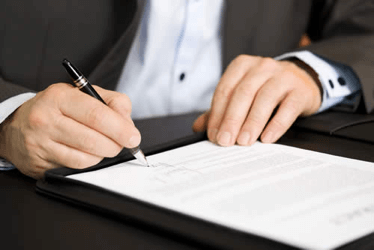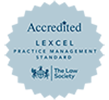
What Is the Process of Commercial Debt Collection?
Commercial debts can be a serious issue for business. These interrupt your cash flow, and can have a deleterious impact upon your business if left for long enough. In this article, we’ll explain the UK commercial debt collection process, and what actions you can take to reclaim your outstanding debts…
What is commercial debt recovery?
Commercial debt collection is the process of recouping any outstanding invoices owed to a business (known as the creditor). This can be from other businesses, local authorities, or sole traders, who are described as the debtor. Commercial debt recovery follows a strict legal process which we will explain in more detail below.
Note: commercial debt collection from a sole trader follows a different process called a pre-action protocol.
What is the difference between commercial and consumer debt?
In the simplest terms, commercial debt is money which is owed between two businesses, whereas consumer debt is owed by an individual to a business.
Whilst this follows a similar structure, some of the processes of consumer debt collection are different from a business-to-business case.
At Thomas Higgins Limited, our expert debt recovery solicitors specialise in collecting undisputed legal debts owed to businesses by other businesses.
The process of commercial debt recovery
In this section, we will explain the four steps a business debt collection agency can undertake on your behalf during the process of debt recovery.
Letters before action
The first stage of commercial debt collection is to issue a letter before action, or LBA. This is a formal letter sent to the debtor explaining the situation and warning them of potential legal action if they do not pay within seven days.
However, it’s worth remembering that a letter before action is not an instigation of court proceedings. This acts as both a reminder and a prompt to encourage the debtor to settle the payment before it reaches the courts.
To send an LBA, a debt collection agency needs the name and address of the debtor, as well as the amount owed to you.
Letters before action should be sent from a specialised solicitor which will set out the appropriate legal obligations for you and the debtor. In most cases, this process puts reasonable pressure on the debtor and is enough to have the outstanding amount paid.
However, this is not always the case. If the debt is still outstanding after you’ve sent a letter before action, you will need to continue with the next stage of business debt recovery.
Can I receive compensation by sending a letter before action?
Many businesses, when they’re going through the process of debt collection, will decide to claim interest and compensation to offset any financial difficulties they have experienced due to the late payment.
However, you should know that you cannot claim interest and compensation with a standard letter before action.
In these cases, you would need to send a late payment demand letter, or LPD. This is a different document that will calculate and charge the debtor with the total amount owed, including any additional fees you can claim for the inconvenience of a late payment.
These charges are calculated in line with Government guidance, specifically according to the Late Payment of Commercial Debts (Interest) Act 1998, alongside the amendments and additions made in The Late Payment of Commercial Debts Regulations 2002 and 2013.
To learn more about additional funds you can receive for late payments, read our guide to Late Payment Charges.
Note: a late payment demand letter can be sent in place of a letter before action as the preliminary action before involving the courts.
Legal claim
The next step in business debt recovery is to submit a legal claim through a commercial debt collection agency - like Thomas Higgins Limited Solicitors. This is a formal application to the courts to start proceedings through their network.
From this, the debtor will receive a County Court Claim form prompting them to pay the amount outstanding, in addition to costs and interest, within 14 days of service of the claim form.
This puts more pressure on the debtor to pay off the debt. A properly formulated legal claim can also encourage the debtor to come to you with a repayment plan if they cannot afford to pay the whole sum at once.
It is your choice whether to accept any repayment negotiations, but you should consider future business relations before rejecting the offer outright.
Failure to respond entirely at this stage, either by not paying or ignoring the warning, then triggers the next steps to recovering the money you’re owed.
County court judgment (CCJ)
If your legal claim also goes ignored, the next step is to apply to the County Court for a county court judgment.
Note: in commercial debt recovery, a CCJ is made directly against the business who owes you money, rather than an individual within the company.
All CCJs are added to the Register of Judgments, Orders, and Fines and remain there for six years. This longevity can have massive consequences for businesses, as it can make it more difficult to apply for credit in the future.
Additionally, since this register is a matter of public record, most debtors want to avoid receiving a CCJ to maintain their reputation.
It is possible for a debtor to have a CCJ removed from the record if payment of the CCJ is made within a month. This tends to encourage the debtor to pay promptly to avoid future issues.
If a CCJ is ignored it affords you more power in how you can collect the debt owed.
Enforcement
Once a CCJ has been obtained, you have the ability to use stronger enforcement measures for your commercial debt recovery.
For example, you can ask the courts to issue a “warrant of control”. This instructs a bailiff to collect the money directly from the debtor. Initially the bailiff will send a formal notice to the debtor to request that payment of the warrant sum is paid within seven days.
If payment is not made after this period, the bailiffs will arrange to visit the business premises to see if anything can be sold off to pay the outstanding debt.
If you choose Thomas Higgins Limited as your commercial debt recovery agency, we’ll instruct a county court bailiff for debts of £600 and less, including costs and interest. For anything more, we’ll instruct a High Court Enforcement Officer.
As a last resort to collect a commercial debt, you can apply for involuntary liquidation, or a “winding up” order. This is where the company is forced by the courts to stop operating and sell off their assets to repay their debts.
This is the most extreme option, and many debtors will choose to pay you before they reach this stage.
I’m owed money by another business. What are my next steps?
At Thomas Higgins Limited, we’re conscious that debt recovery is unfortunately a real issue for most businesses. That’s why we specialise in streamlining the process to make it easy for you to claim any outstanding debts owed to you.
By opening an account with us, you can access and monitor all the records and correspondence relating to your case, open new cases, and issue instructions every step of the way. We understand that you know your clients best, which is why we put you in control.
In addition, the Thomas Higgins Limited’s app makes it even easier for you to monitor and manage your account from wherever you are. You can receive real-time updates and trust that we’re doing everything we can to resolve your case.




